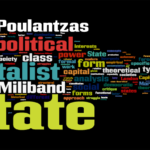What Defines Revolutionary Politics? A Response to Dan La Botz

I dislike criticizing my good friend Dan La Botz, but I have to disagree with aspects of his review of The Socialist Manifesto, the new book by Bhaskar Sunkara, our fellow New Politics editorial board member and editor of Jacobin. To me, Dan’s review has a bit of a sectarian and unearthly air.
The vast majority of U.S. workers currently aren’t revolutionary socialists and aren’t likely to become so in the near future. They do, however, generally want radical reform, or at least what would be considered radical reform within the context of the United States. And they understand that “the billionaire class” is a barrier to reform.
What else is this but “class-struggle social democracy,” which Dan derides? Aren’t we Marxists objectively on the same side as such people? Aren’t we fighting alongside them to ensure that workers’ immediate needs get met regardless of what capital can currently “afford”? (As if that is ever a problem in the wealthiest country in the world!)
Dan seems to think that a social-democratic labor party split from the Democrats would be a bad thing, or at least that is certainly how his prose reads. I was under the impression that everyone on the rational wings of the U.S. far left thought that establishing a labor party, however imperfect, in this country would be a good thing. That’s why we were all in Tony Mazzocchi’s Labor Party Advocates, right? What was that if not class-struggle social democracy? The Labor Party didn’t have a full-blown socialist program. But we supported it anyway.
Dan also writes as if Ralph Miliband didn’t criticize François Mitterand or Salvador Allende. He did. For most of his life Miliband was to the left of left social democracy. Moreover, there’s no reason to look at Allende’s or Mitterand’s governments as sincere examples of “class-struggle social democracy.” Mitterand was an opportunist who talked “left” from the get-go in the ’70s, and Allende was always happily in coalition with a class-coalitionist Communist Party.
Dan wonders why Bhaskar didn’t talk about these things, but perhaps it’s because they’re not models of his vision of a transition to socialism? I admit that I haven’t read his book yet, but I’ve known Bhaskar ten years and I can make an educated guess.
Dan’s suggestion that “arming the people” in Chile could have worked, could have established socialism, is nonsense. Traditional Trotskyist nonsense, to be blunt. There was no way to do it and to try to do it would’ve made the 1973 coup come sooner. The Chilean bourgeois state had tanks and fighter planes. Guns can’t defeat such things. Or were the Chilean toiling masses to be armed with vehicles and aircraft (from where?) that they didn’t know how to operate?
I agree that any book that takes socialism seriously as a goal but doesn’t stress the need to win over the rank-and-file of the armed forces of the capitalist state is a book that lacks a certain seriousness. If Bhaskar’s book doesn’t do that, then that’s a serious failing. And Chile’s Popular Unity government was fundamentally not serious because it never tried to do this, before or during its time in government. But to speak of creating and arming socialist “extra-legal police and military forces” — armed forces who do not constitute a majority of the police or army ranks, I presume — strikes me as otherworldly.
There’s no literal civil-war road to socialism. Never mind that most workers don’t want to engage in such a war and never will (I’ll bet my life on it). At best it would lead to “the mutual ruin of the contending classes,” to quote the Communist Manifesto. The last “classic” civil war between left and right was the Spanish Civil War, in what was still predominantly an agrarian country. Maybe ten percent of Spaniards died or were wounded in the war and only the Nazis supplied air power. Do we imagine air duels between bourgeois and proletarian pilots?
Even talking about such things when neither Dan nor I know how to fly an F-18 or drive an M1 Sherman tank is almost hallucinogenic.
It needs to be emphasized that, alas, the Chilean Popular Unity government was doomed no matter what it did, not only because it didn’t have mass support in the rank-and-file of the armed forces, but because it was basically a non-Stalinist attempt at a transition to “socialism in one country.” Without a mass Latin American Socialist International (one worthy of the name) it would’ve been crushed even without the absurd trust in General Pinochet. If the U.S. is “making the economy scream,” what can a socialist government do? What could a Chilean workers’ state do, for that matter, unless a mass Latin American Socialist International already existed? Didn’t the failure of the Bolshevik Revolution prove that the strategy of an “ad-hoc” chain of national revolutions is unlikely to work, even when a whole continent (Europe) has millions of workers — but not millions enough — willing to join communist parties?
In short, the Chilean Socialist Party should have remained in the parliamentary opposition “permanently” until it was able to split the army along class lines and had enough international support to make the start of a transition to socialism possible. Here, I think, there’s overlap between Dan and me. Forming a government should never be the number one socialist priority. (I would say this too to socialists in the UK who think that the most important thing they can do is ensure that Labour wins the next election — as if a Labour government coexisting with a somnambulant union movement, as the UK currently has, is going to be able to accomplish more than modest reform. Here, maybe, I disagree with Bhaskar. I’m not sure.)
As for “revolution” and what it means. I guess we have different definitions. For me, revolutionary politics is about ends, and only secondarily means. It requires the overturning (“smashing,” if one insists) of the existing state, specifically the constitution, which is designed to make the state subject to capital — but exactly how this is to be done is a matter of circumstance and not principle (beyond the exclusion of unacceptable, putschist means). Violence — which is what I presume Dan means by “smashing the state” — is not a principle. On the contrary, the whole point of winning over the military rank-and-file is precisely to preempt the ruling class’s violence.
 Yes, Nicos Poulantzas and Miliband are ultimately too vague (Poulantzas especially) in their vision of the transition from a capitalist state to a workers’ state. No argument there. But both do, actually, acknowledge that a “socialist” state (there’s no state in socialist, AKA communist, society, or so Marx told me) will be more democratic than a capitalist state, and Miliband’s strategy is at least somewhat reminiscent of the “workers’ government” proposal of the early Communist International. In Marxism and Politics (1978) he envisions a strong partnership between a genuinely socialist government and new structures that will give its supporters real decision-making power. A transition to socialism would involve “radical changes in the structure, modes of operation, and personnel of the existing state, as well as the creation of a network of organs of popular participation.”
Yes, Nicos Poulantzas and Miliband are ultimately too vague (Poulantzas especially) in their vision of the transition from a capitalist state to a workers’ state. No argument there. But both do, actually, acknowledge that a “socialist” state (there’s no state in socialist, AKA communist, society, or so Marx told me) will be more democratic than a capitalist state, and Miliband’s strategy is at least somewhat reminiscent of the “workers’ government” proposal of the early Communist International. In Marxism and Politics (1978) he envisions a strong partnership between a genuinely socialist government and new structures that will give its supporters real decision-making power. A transition to socialism would involve “radical changes in the structure, modes of operation, and personnel of the existing state, as well as the creation of a network of organs of popular participation.”
Now, Miliband doesn’t say “soviets” in regard to this version of “dual power.” I don’t think it’s really because he’s opposed to soviets per se. It’s that he doesn’t think that soviets are ever likely to appear in a long-established bourgeois democracy. On this I agree with him. I just don’t think they’re coming back ever again. (Is there reason to believe otherwise?)
So Miliband, and perhaps to a lesser extent Poulantzas, are trying to say “if the scenario that Trotskyists like Ernest Mandel and Tony Cliff envision is extremely unlikely in the countries we live in, what would a credible path to socialism look like?” This is what all of us should be asking now that we have something approximating a socialist movement in the U.S. again. We should also be rethinking what the institutionalization of socialist democracy would mean if “all power to the soviets” is not going to be a future option.
Let me say a few words about Michael Harrington, who did, in my opinion, write a few quality books, but who most DSA members have never even read. He had different political perspectives at different times. His last book, Socialism Past & Future (1989), is quite good, despite my disagreements with it. True, I never liked his term “visionary gradualism.” But I knew what he meant. He wasn’t embracing the optimistic gradualism of an Eduard Bernstein. I’ll quote him:
“…there is no such thing as a socialist apocalypse, a sudden leap, to use the classic Marxian formulation, from the ‘kingdom of necessity’ to the ‘kingdom of freedom.’ Modern society is so complex that even in the unlikely event of a political revolution in the West, fundamental change – of human consciousness as well as of technology and institutions – takes a great deal of time. We are talking, then, about a transitional epoch, not a day, a year, or even a decade.”
At the same time, he describes socialist democracy — quoting Max Horkheimer — as “the Greek polis without slaves.”
I don’t see how we get to said polis without a political revolution (as I’ve described it), of course. And in 1989, when Harrington’s book was published, such a thing surely seemed almost inconceivable. But one still has to make clear that – even if we need a great deal of patience, even if we have to accept a “gradualism” we despise — it’s necessary to get there.